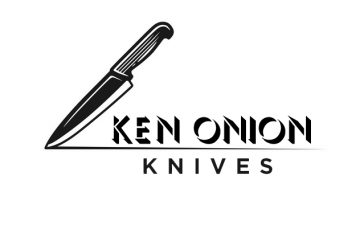
If you’re going to purchase a new knife, you’ll want to find out how thick the knife steel is. There are a few options to choose from, including German, Carbon, or Damascus. You can even have a custom knife made, which will give you the exact thickness you want.
Carbon steel
If you are considering buying a knife, you’ll have to decide whether you’d like to use stainless steel or carbon steel. Both steels have their advantages and disadvantages. While stainless steel has been the preferred choice for many people, carbon steel is becoming increasingly popular.
Carbon steel is a great choice for knives, especially for hard-working applications. These metals are tough, durable, and able to hold a superior edge. But, you need to take extra care when using them.
Stainless steel is also durable and resistant to corrosion, making it a good choice for many applications. However, it is more prone to dulling, and it needs more maintenance than a carbon steel knife. The rusting process on a carbon knife is much faster than on a stainless steel knife.
Stainless steel
If you’re looking for the perfect knife, you might want to consider the thickness of the steel. The thickness of the blade affects how sharp and hard it will be. It also affects how well the edge will hold. Some steels can be very tough, while others are less resistant to wear and chipping.
There are many different types of knife steel available, but there are some standards for hardness and toughness. These standards generally measure a steel’s ability to resist deformation when under stress or torsion pressure.
Most knives are made from carbon steel. Carbon steel is relatively dull. However, it has excellent hardness. In addition to its strength, carbon steel is non-magnetic.
High carbon steels contain chromium and vanadium, which increase the wear resistance of the blade. Typically, a high carbon steel contains about 20% chromium and around 10% vanadium.
Tool steel
When choosing the best steel for your knife blade, there are a number of factors to consider. You should find a combination of strength, toughness, and edge stability. However, it is important to note that it is not possible to pick the perfect material for every use.
For instance, if you’re a heavy user of your knife, you may wish to invest in a tougher, higher-carbon grade. Fortunately, there are several choices, including C1045, VG-10, and high-speed tool steels.
Among the most popular and widely used types of steel for knives are high-carbon grades, such as 1095. This type of steel contains around 95% carbon. In addition to its ability to cut through tough materials, it also has a high degree of wear resistance.
Although a lot of manufacturers will rely on coatings to make their knives last, the real strength is found in the underlying material. Thin edges are less resistant to wear, so they are more prone to chipping and breaking.
German knife steel
German knives are renowned all over the world for their durability and versatility. They are typically made with thicker and wider blades, along with wider, tapered bevels, making them ideal for a variety of cutting tasks. However, their edge retention and sharpness can be less than ideal. It’s important to know how to maintain the blade for optimal performance.
Most German knives feature a wide, curved blade profile that facilitates rocking actions. This design also allows for a thinner and more precise blade edge.
The steel used to make these knives is softer. But this doesn’t mean it won’t hold an edge as long as other types of steel. A soft edge is easier to maintain and won’t crack as easily.
A high-carbon steel is an alloy of chromium, nickel, and vanadium. The amount of each metal is variable, from 10% to 22%. Some high-carbon alloys are hardened to 65 to 67 HRC.
Damascus steel
If you’re looking for a knife steel that will hold an edge for a long time, you can’t go wrong with Damascus. It offers strength, durability, and a unique look. However, it also has some limitations.
First, it’s important to know that Damascus isn’t a single metal. Rather, it is an alloy that’s made from a variety of steel impurities. This explains why some knives that are made from it perform less than other knives.
The chemical composition of the metal also plays a role. The presence of a heavy concentration of carbon guarantees great performance.
Generally, Damascus is a high-carbon alloy. Carbon steel is stronger than stainless steel. And, it’s easier to sharpen.
Unlike other types of blades, a high-carbon blade has the ability to cut meat and bones better. That makes it great for hunting. But, it’s also a bit more brittle.
